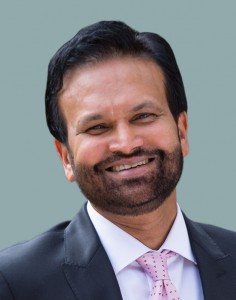The WHO recognises World Mental Health on 10th Oct every year. This World Mental Health Day comes at a very crucial time when our life is totally changed with this pandemic. Last few months have brought many challenges for health-care workers, providing care in difficult situations, going to work fearful of bringing COVID-19 home with them. Schools and colleges shut down lead to a culture of taking classes from home. Students are not able to meet their friends and teachers and also anxious about their futures.

Important Announcement – EasyShiksha has now started Online Internship Program “Ab India Sikhega Ghar Se”

The months of lockdown and the economy going down many people lose their jobs have had a huge impact on us all, and prioritising mental health has never been more important than it is now. During lockdown people don’t had a social life and social gathering which leads to these health issues. But this lockdown also teaches us to take care of your health first. This year the vast number of people caught in poverty, many loss their jobs during lockdown and the biggest pain of managing the grief of losing a loved one, sometimes without being able to say goodbye. It seems like a nightmare but we don’t have to lose our hopes. We will get out of this situation by getting our-self healthy both mentally and physically.
That’s why this year we want to bring a change in your life. Everyone together marks this day special by each doing one thing for better mental health. Making positive change can seem a bit hard, especially during uncertain conditions. And sometimes, it can be difficult to know where to start. Initiate this on World Mental Health Day to find out more about how you can start with one thing.
Remember one thing our brain is the most important organ of our body. If our brain is healthy and we are mentally strong then we can win in any bad situation. Before this we all need to understand that mental health is similar to physical health everybody has it and we need to take care of it. This health issue affects around every one in four people in any given year. This starts with some common issues like depression, anxiety and some rare problems like schizophrenia and bipolar disorder.
Give you few tips to wok on your mental health
Talk about your feelings: Talking about your feelings is not a sign of a weak person. It’s part of taking charge of your well being and doing what you can to stay healthy. This COVID-19 situation you can do video calling, phone calls and get connected with your loved ones.
Regular exercise: This can also play a major role in your mental health. When you exercise there are lot of new brain cells generated. That will definitely make your brain healthy.
Eat Healthy food Your brain needs a mix of nutrients in order to stay healthy and function well, just like the other organs in your body. A diet that’s have a good impact on your physical health is also good for your mental health.
I hope to work on your mental health and make your life more happy and healthy on this World Mental Health Day.
Dr. Sanjeev Kanoria, Founder, Suasth Hospital
 The unprecedented global health emergency due to COVID-19 has impacted the mental health of millions of people. World Federation of Mental Health (WFMH) decided the theme for 2020; which is mental health for all, the focus on greater investment- greater access. Hence, this year let’s talk about finding better ways to deal with these psychological issues with self-awareness and sensitivity. Common mental health disorders include depression, anxiety. There are various contributing factors to it such as uncertainty, social exclusion, loneliness, confinement, and emotional and economic distress. These are also some of the most common causes of non-fatal diseases in India.
The unprecedented global health emergency due to COVID-19 has impacted the mental health of millions of people. World Federation of Mental Health (WFMH) decided the theme for 2020; which is mental health for all, the focus on greater investment- greater access. Hence, this year let’s talk about finding better ways to deal with these psychological issues with self-awareness and sensitivity. Common mental health disorders include depression, anxiety. There are various contributing factors to it such as uncertainty, social exclusion, loneliness, confinement, and emotional and economic distress. These are also some of the most common causes of non-fatal diseases in India.
We require a systematic understanding of their prevalence and a better awareness of assessment and treatment options. Let’s also learn that the evidence-based treatment by qualified psychiatrist and psychologist is the way out. The holistic treatment is now moved from an ancient medical practice to data-driven research and technology-based approach, mental health treatment has come a long way. Today the focus on mental health has shifted towards innovation and scaling-up investments.
Top Courses in Software Engineering
The rights of people living with mental health issues can be protected and promoted through mental health legislation, policy, development of affordable; quality community-based mental health services. The involvement of CSR, self-help groups, caregivers along with mental health professionals can create emotional wellness for all.
Prakriti Poddar,Expert in Mental Health, Director Poddar Wellness Ltd,Managing Trustee Poddar Foundation
 Over the years, I have had the chance to talk about the subject of mental health at length with my peers in the industry. One factor that invariably underscores all our discussions is the shortage of funding in mental health. We cannot expect to make headway in spreading awareness about mental health problems when the budgetary allocation for mental health is just 0.05 percent of the total healthcare budget. In a country with a population of over 12 billion, over 5 crore people suffer from some form of mental disorder. With just one psychiatrist for over 13000 people, most mental health professionals shoulder an excess case load without any institutional support. The pandemic and the ensuing uncertainty and economic instability have not only led to a spike in the number of mental health cases across the country, but also exposed the inadequacy of our healthcare system’s crisis-readiness in tackling a surge in mental health cases. If we do not address the problem now, we are looking at a mental health epidemic down the road, one we are woefully under equipped to fight. Unless there’s an investment push and government backed awareness programs to destigmatize mental health problems, people are not going to come out and talk about it in the open. We also need to sanction more psychiatry seats in government colleges to promote psychiatry as a serious discipline at the undergraduate level. Building a robust telecommunication network and increasing access to virtual consultations will help increase access to mental health services in areas with a shortage of trained professionals.
Over the years, I have had the chance to talk about the subject of mental health at length with my peers in the industry. One factor that invariably underscores all our discussions is the shortage of funding in mental health. We cannot expect to make headway in spreading awareness about mental health problems when the budgetary allocation for mental health is just 0.05 percent of the total healthcare budget. In a country with a population of over 12 billion, over 5 crore people suffer from some form of mental disorder. With just one psychiatrist for over 13000 people, most mental health professionals shoulder an excess case load without any institutional support. The pandemic and the ensuing uncertainty and economic instability have not only led to a spike in the number of mental health cases across the country, but also exposed the inadequacy of our healthcare system’s crisis-readiness in tackling a surge in mental health cases. If we do not address the problem now, we are looking at a mental health epidemic down the road, one we are woefully under equipped to fight. Unless there’s an investment push and government backed awareness programs to destigmatize mental health problems, people are not going to come out and talk about it in the open. We also need to sanction more psychiatry seats in government colleges to promote psychiatry as a serious discipline at the undergraduate level. Building a robust telecommunication network and increasing access to virtual consultations will help increase access to mental health services in areas with a shortage of trained professionals.
Prateek Shukla, Co-founder and CEO of Masai School
 “Over the last couple of years, online learning has been picking up pace with students and professionals alike taking to skilling programs. However, the onset of the pandemic witnessed how online learning became the go to solution to aid in learning continuity. With schools and colleges taking to digital means of learning and teaching, video calls and extended hours of screen time have suddenly become an integral part of the students’ lives.
“Over the last couple of years, online learning has been picking up pace with students and professionals alike taking to skilling programs. However, the onset of the pandemic witnessed how online learning became the go to solution to aid in learning continuity. With schools and colleges taking to digital means of learning and teaching, video calls and extended hours of screen time have suddenly become an integral part of the students’ lives.
That said, it is becoming imperative for organisations to reinvent e-learning practices to help students fight this new age challenge. At Masai School, we are constantly striving to provide our student community with the necessary support in times like these. To help prepare for the day with a clear mind, we have integrated everyday mediation sessions to start their day on the right note.
Additionally, students are also engaged in scrum sessions to connect with their peers, faculty members and, review the day’s activities.”
Ms Amritah Sandhu, Founder & Director of CareIndia, a wellness pharmacy working for women health in rural areas
 With the pandemic leading to major uncertainty and insecurity, the question has once again raised on India’s chronically low expenditure on mental health. This is turning out to be a major bane as the country witnessed a major surge in mental illnesses in a post-COVID 19 world. The worst hits are women. A survey carried out by the Royal Society for the Encouragement of Arts, Manufactures and Commerce (RSA), found women who are currently in work are substantially more anxious about their economic prospects in the wake of the pandemic than men. Most women feel that the money concern prompted during the pandemic is directly affecting their mental health. The pandemic has added new threats to livelihoods and job losses in the minds of the women. Besides that, the women in the healthcare sector are deeply bothered about their health and they feel they can anytime succumb to the deadly infection. The government needs to consider how its new economic measures will deal with this unequal division of labour, and make sure that women are properly supported, not least through access to proper mental health services at home”
With the pandemic leading to major uncertainty and insecurity, the question has once again raised on India’s chronically low expenditure on mental health. This is turning out to be a major bane as the country witnessed a major surge in mental illnesses in a post-COVID 19 world. The worst hits are women. A survey carried out by the Royal Society for the Encouragement of Arts, Manufactures and Commerce (RSA), found women who are currently in work are substantially more anxious about their economic prospects in the wake of the pandemic than men. Most women feel that the money concern prompted during the pandemic is directly affecting their mental health. The pandemic has added new threats to livelihoods and job losses in the minds of the women. Besides that, the women in the healthcare sector are deeply bothered about their health and they feel they can anytime succumb to the deadly infection. The government needs to consider how its new economic measures will deal with this unequal division of labour, and make sure that women are properly supported, not least through access to proper mental health services at home”
Mr. Vinod Malhotra Advisor, Seth Anandram Jaipuria Group of Educational Institutions
 “Metaphorically speaking, the ‘word’ health encapsulates every aspect of human existence- from physical, mental to a lifestyle that must promote good health and well-being on a sustainable basis.
“Metaphorically speaking, the ‘word’ health encapsulates every aspect of human existence- from physical, mental to a lifestyle that must promote good health and well-being on a sustainable basis.
Mental health and stability constitute the veritable foundation. It is important to understand that most of our health problems are psychosomatic in nature. Our brain and our cerebral system control and direct all our thoughts and actions. Hence this must be fully protected and detoxified on a regular basis.
The secret to this is to stay with positive thoughts, develop empathy and sensitivity towards the entire creation and remain contented.”
He also concluded that “Maintenance of work- life balance and engagement in healthy pursuits that act as a strong stress buster, ensure complete mental health and stability.”
Dr. Meena Chintamaneni, Registrar, SVKM’s NMIMS Deemed-to-be University
 “It is worrisome that mental health might be the prime concern and become a 2021 pandemic and it is our responsibility that we safeguard the youth who are the strong pillars of the country. The key to maintaining balance is to constantly engage constructively with students and to help them tackle anxiety. It is important to ensure the safety of their future. Students should be kept apprised of the changes happening in the industry due to pandemic, its impact and how to embrace technology to come to the forefront in difficult times. Key learning’s through these tough times is adaptability, agility and innovative thinking that emerges as drivers for survival. Regular webinars, talks, close group discussions and virtual one-on-ones help students to gain a perspective and understand the situation better and deal better. Additionally, as an extremely different set of skills and critical thinking is getting tested virtually, at NMIMS we are exposing students to the real working world and preparing them to combat any situation. The companies are evaluating students on real-time situations and issues, desk reviews and company reports and students are experiencing a virtual world in academics, projects as well as internships. At NMIMS, we plan to continue an efficient mechanism that ensures that our students are at par and are stable even at such difficult times! Youth is the strength of our society and nation. Nurture them, guide them to be successful in all situations.”
“It is worrisome that mental health might be the prime concern and become a 2021 pandemic and it is our responsibility that we safeguard the youth who are the strong pillars of the country. The key to maintaining balance is to constantly engage constructively with students and to help them tackle anxiety. It is important to ensure the safety of their future. Students should be kept apprised of the changes happening in the industry due to pandemic, its impact and how to embrace technology to come to the forefront in difficult times. Key learning’s through these tough times is adaptability, agility and innovative thinking that emerges as drivers for survival. Regular webinars, talks, close group discussions and virtual one-on-ones help students to gain a perspective and understand the situation better and deal better. Additionally, as an extremely different set of skills and critical thinking is getting tested virtually, at NMIMS we are exposing students to the real working world and preparing them to combat any situation. The companies are evaluating students on real-time situations and issues, desk reviews and company reports and students are experiencing a virtual world in academics, projects as well as internships. At NMIMS, we plan to continue an efficient mechanism that ensures that our students are at par and are stable even at such difficult times! Youth is the strength of our society and nation. Nurture them, guide them to be successful in all situations.”
Ms. Smita Bharti, Executive Director, Sakshi-a rights based NGO
 “Healthcare is necessary and peoples’ mental health is no exception. It is a public health issue and we need to understand that caring for one’s mental health is just as important as caring for one’s physical health. The stigma against those who experience mental illnesses is based on the ableist idea that people cannot be mentally ill if they simply tried not to be, and for those who cannot will themselves out of being mentally ill, they must be isolated and shunned from society. The long-lasting effects upon those who experience unchecked mental illness is too big to ignore. It can disrupt their ability to live their lives, affect how they function in school, work, and day-to-day life. Addressing peoples’ mental health, even those who do not have mental illnesses, is crucial because people deserve to have access to resources that will reassure and strengthen their morale, but also allow to be treated as human beings with complex emotion who require care and empathy.”
“Healthcare is necessary and peoples’ mental health is no exception. It is a public health issue and we need to understand that caring for one’s mental health is just as important as caring for one’s physical health. The stigma against those who experience mental illnesses is based on the ableist idea that people cannot be mentally ill if they simply tried not to be, and for those who cannot will themselves out of being mentally ill, they must be isolated and shunned from society. The long-lasting effects upon those who experience unchecked mental illness is too big to ignore. It can disrupt their ability to live their lives, affect how they function in school, work, and day-to-day life. Addressing peoples’ mental health, even those who do not have mental illnesses, is crucial because people deserve to have access to resources that will reassure and strengthen their morale, but also allow to be treated as human beings with complex emotion who require care and empathy.”
Divya Lal, Managing Director, Fliplearn Education Pvt. Ltd
 “We at Fliplearn believe that knowledge of mental health is an important issue for all educators and professionals in this sector.
“We at Fliplearn believe that knowledge of mental health is an important issue for all educators and professionals in this sector.
Education practitioners have acknowledged the effect on the learning and success of a student on his or her mental wellbeing, and they know that there is a lot that can be done to support students with mental health issues.
We believe that mental health education should be a compulsory subject for all school classes, and it should now be taken seriously into account as we transition into digital learning too.”
“At the same time”, she added, “ there is another aspect to this important issue – the mental health of an educator is also one of the main factors in the academic development of a student. The mental health of teachers and students is intertwined, thereby directly influencing their learning and results. Teachers go through high stress levels, not only in India but globally and, we need to start talking about their mental health wellness too.”
Dr. Reeta Sonawat, Director, Early Childhood Education, Ampersand
In India the stigma related to mental health issues originates from highly qualified people, professionals and individuals with strong family backgrounds. This kind of stigmatization has to end immediately. Going to a physician is not an issue. But anxieties and depression are being dismissed as loneliness.
We need strong advocacy campaigns run by organisations, companies, universities, schools to end the stigma that anxiety, depression, by polar disorder are only mere drama or nothing of consequences. To maintain a wheel of life it is an important aspect of our health in order to balance life.
For information related to technology, visit HawksCode and EasyShiksha
Empower your team. Lead the industry
Get a subscription to a library of online courses and digital learning tools for your organization with EasyShiksha
Request NowQ. Are EasyShiksha's internships truly free?
Yes, all internships offered by EasyShiksha are completely free of charge.
Q. How can I apply for an internship with EasyShiksha?
You can apply by visiting our website, browsing available internships, and following the application instructions provided.
Q. What types of internships are available through EasyShiksha?
EasyShiksha offers a wide range of internships across technology, business, marketing, healthcare, and more. Opportunities are continuously updated.
Q. Will I receive a certificate upon completing an internship?
Yes, upon successful completion, you will receive a certificate recognizing your participation and achievements.
Q. Are EasyShiksha's internship certificates recognized by universities and employers?
Yes, the certificates are recognized by universities, colleges, and employers worldwide.
Q. Is the download of certificates free or paid?
Access to internships and courses is free, but there is a small fee to download certificates, covering administrative costs.
Q. When can I start the course?
You can choose any course and start immediately without delay.
Q. What are the course and session timings?
These are fully online courses. You can learn at any time and pace. We recommend following a routine, but it depends on your schedule.
Q. What will happen when my course is over?
After completion, you will have lifetime access to the course for future reference.
Q. Can I download the notes and study material?
Yes, you can access and download course materials and have lifetime access for future reference.
Q. What software/tools would be needed for the course?
All necessary software/tools will be shared during the training as needed.
Q. I’m unable to make a payment. What should I do?
Try using a different card or account. If the problem persists, email us at info@easyshiksha.com.
Q. Do I get the certificate in hard copy?
No, only a soft copy is provided, which can be downloaded and printed if required.
Q. The payment got deducted but shows “failed”. What to do?
Technical errors may cause this. The deducted amount will be returned to your account in 7-10 working days.
Q. Payment was successful but dashboard shows ‘Buy Now’?
Sometimes payment reflection is delayed. If it takes longer than 30 minutes, email info@easyshiksha.com with the payment screenshot.
Q. What is the refund policy?
If you face technical issues, you can request a refund. No refunds are issued once the certificate has been generated.
Q. Can I enroll in a single course?
Yes, select the course of interest, fill in the details, make payment, and start learning. You will also earn a certificate.
Q. My questions are not listed above. I need further help.
Contact us at info@easyshiksha.com for further assistance.
ALSO READ: Cyril-amarchand-mangaldas-announces-launch-second-cohort-prarambh
Get Course: Basic-Photosynthesis-System-Definition-Lession




































































